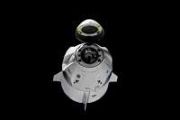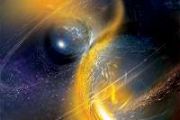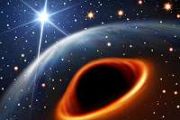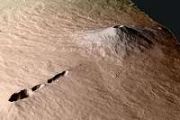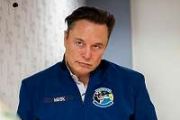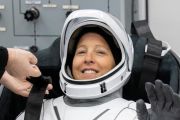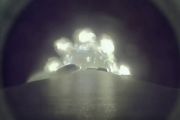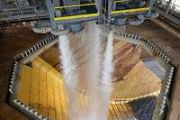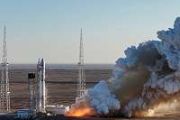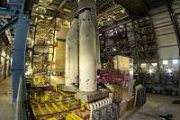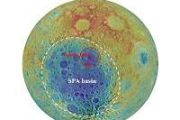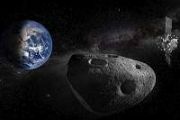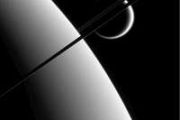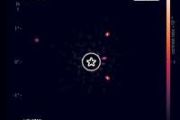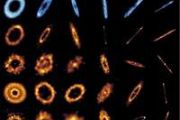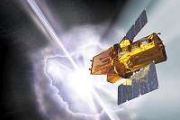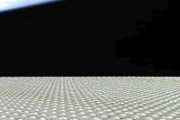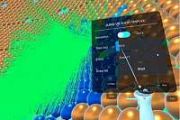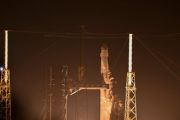
Copernical Team
OpenET Moisture Measurement Tool is Proving Highly Accurate
 As the world looks for sustainable solutions, a system tapping into NASA satellite data for water management has passed a critical test.
Called OpenET, the system uses an ensemble of six satellite-driven models that harness publicly available data from the Landsat program to calculate evapotranspiration (ET)-the movement of water vapor from soil and plant leaves into the atmosphere. OpenET
As the world looks for sustainable solutions, a system tapping into NASA satellite data for water management has passed a critical test.
Called OpenET, the system uses an ensemble of six satellite-driven models that harness publicly available data from the Landsat program to calculate evapotranspiration (ET)-the movement of water vapor from soil and plant leaves into the atmosphere. OpenET Beyond Gravity supports NASA in enhancing climate data accuracy with PACE satellite
 Beyond Gravity, Europe's leading space supplier, has been selected by NASA to provide crucial navigation technology for a new climate satellite, the PACE mission, set to launch on February 6, 2024. This collaboration underscores the importance of precision in space missions, especially those monitoring the Earth's environmental health.
The PACE (Plankton, Aerosol, Cloud, Ocean Ecosystem) m
Beyond Gravity, Europe's leading space supplier, has been selected by NASA to provide crucial navigation technology for a new climate satellite, the PACE mission, set to launch on February 6, 2024. This collaboration underscores the importance of precision in space missions, especially those monitoring the Earth's environmental health.
The PACE (Plankton, Aerosol, Cloud, Ocean Ecosystem) m Integrated design of Global Ocean Observing System essential to monitor climate change
 We know that our climate is changing. Extreme weather events are becoming more common, sea levels are rising and overall, our planet is getting warmer. Monitoring these changes is critical. One of the best indicators of climate change is the Ocean Heat Content (OHC) estimate, a measurement of overall oceanic temperature calculated by gathering water temperature data in oceans around the world in
We know that our climate is changing. Extreme weather events are becoming more common, sea levels are rising and overall, our planet is getting warmer. Monitoring these changes is critical. One of the best indicators of climate change is the Ocean Heat Content (OHC) estimate, a measurement of overall oceanic temperature calculated by gathering water temperature data in oceans around the world in ESA Engineer Challenges Satellite Simulator with Unique Hover-Machine Test
 In an innovative step towards advancing space technology, the European Space Agency's (ESA) ORBIT laboratory at the ESTEC technical center in the Netherlands has become the stage for a unique experiment. Jules Noirant, an ESA engineer, recently conducted a noteworthy test involving a satellite simulator platform that floats on a cushion of air, showcasing the lab's capabilities in simulating the
In an innovative step towards advancing space technology, the European Space Agency's (ESA) ORBIT laboratory at the ESTEC technical center in the Netherlands has become the stage for a unique experiment. Jules Noirant, an ESA engineer, recently conducted a noteworthy test involving a satellite simulator platform that floats on a cushion of air, showcasing the lab's capabilities in simulating the ESA's cloud mission in the limelight
 Dedicated to delivering a wealth of new information on exactly how clouds and aerosols affect Earth's climate, ESA's EarthCARE satellite has had the chance to show off prior to engineers embarking upon the careful task of packing it up for its journey to the launch site in the US.
Carrying four different instruments, this remarkable satellite is the most complex of ESA's Earth Explorer mis
Dedicated to delivering a wealth of new information on exactly how clouds and aerosols affect Earth's climate, ESA's EarthCARE satellite has had the chance to show off prior to engineers embarking upon the careful task of packing it up for its journey to the launch site in the US.
Carrying four different instruments, this remarkable satellite is the most complex of ESA's Earth Explorer mis Direct detection of amino acids and hydrocarbons in meteorites
 The recent study conducted by Dr. Christian Vollmer and his team, in collaboration with British colleagues, marks a significant advancement in the field of astrobiology and planetary science. By examining the Winchcombe meteorite, a rare and quickly collected celestial visitor, they have achieved a groundbreaking feat in demonstrating the presence of key nitrogen compounds, including amino acids
The recent study conducted by Dr. Christian Vollmer and his team, in collaboration with British colleagues, marks a significant advancement in the field of astrobiology and planetary science. By examining the Winchcombe meteorite, a rare and quickly collected celestial visitor, they have achieved a groundbreaking feat in demonstrating the presence of key nitrogen compounds, including amino acids Heritage ERS-2 satellite to reenter Earth’s atmosphere
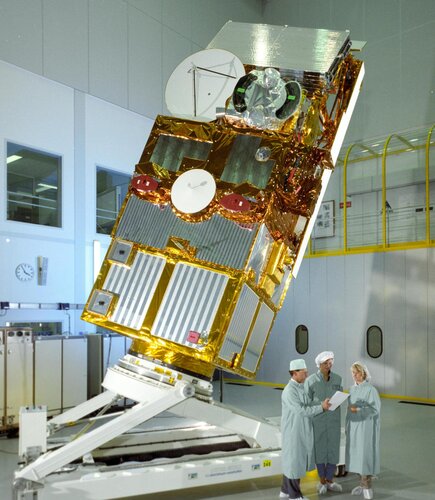
Throughout its 16-year working life, the second European Remote Sensing satellite, ERS-2, returned a wealth of information that revolutionised our perspective of our planet and understanding of climate change. As well as leaving a remarkable legacy of data that still continue to advance science, this outstanding mission set the stage for many of today’s satellites and ESA’s position at the forefront of Earth observation.
In 2011, ESA retired ERS-2 and began the process of deorbiting – and now it’s time for this pioneering satellite to reenter the atmosphere naturally and start to burn up.
BlackStar Orbital to open new spacecraft manufacturing facility in Sierra Vista by 2026
 BlackStar Orbital Technologies Corporation has announced plans to establish a cutting-edge engineering and manufacturing facility in Sierra Vista, Arizona. This strategic development is set to significantly enhance the company's production capabilities, particularly for its innovative BlackStar Spacecraft-a hybrid design blending the functionalities of satellites with the versatility of spacepla
BlackStar Orbital Technologies Corporation has announced plans to establish a cutting-edge engineering and manufacturing facility in Sierra Vista, Arizona. This strategic development is set to significantly enhance the company's production capabilities, particularly for its innovative BlackStar Spacecraft-a hybrid design blending the functionalities of satellites with the versatility of spacepla China prepares to launch Lunar exploration satellites Tiandu 1 and Tiandu 2
 With China's ambitious strides in space exploration, the upcoming launch of two experimental satellites, Tiandu 1 and Tiandu 2, marks a significant step forward in the country's lunar exploration and technological advancements in communication and navigation. These satellites are scheduled for launch in the first half of the year, alongside Queqiao 2, or Magpie Bridge 2, a relay satellite integr
With China's ambitious strides in space exploration, the upcoming launch of two experimental satellites, Tiandu 1 and Tiandu 2, marks a significant step forward in the country's lunar exploration and technological advancements in communication and navigation. These satellites are scheduled for launch in the first half of the year, alongside Queqiao 2, or Magpie Bridge 2, a relay satellite integr Xichang Space Launch Site Celebrates 200th Mission with Geely-02 Satellite Deployment
 China's Xichang Satellite Launch Center, located in the southwestern province of Sichuan, marked a significant milestone on Saturday by successfully completing its 200th launch mission. This achievement cements the Xichang space launch site's position as the fastest of China's inland launch sites to reach this number of missions.
The landmark 200th mission was carried out at 7:37 am (Beiji
China's Xichang Satellite Launch Center, located in the southwestern province of Sichuan, marked a significant milestone on Saturday by successfully completing its 200th launch mission. This achievement cements the Xichang space launch site's position as the fastest of China's inland launch sites to reach this number of missions.
The landmark 200th mission was carried out at 7:37 am (Beiji 



